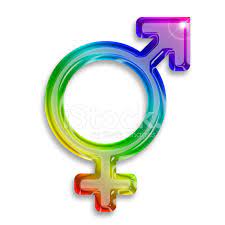Estrogen is often seen as a female hormone, but it’s essential for men as well—albeit in lower amounts. When testosterone levels dip and estrogen levels rise, it can lead to various health issues. This article explores how men can understand and manage estrogen levels effectively. If you’re feeling off, it might be wise to investigate your estrogen levels. Let’s dive into some practical strategies for keeping those levels in check!
Understanding Estrogen: Why It Matters for Men
Estrogen in men plays a crucial role in several bodily functions, including bone health, brain function, and even heart health. However, when estrogen levels become too high, they can disrupt the delicate balance of hormones. This imbalance may lead to issues such as weight gain, fatigue, and even mood swings. Understanding the role of estrogen helps men appreciate why maintaining balanced levels is important for overall health and wellness.Female Hormone Balance Pills
For men, it’s all about balance—estrogen isn’t inherently bad; it’s just about how much is circulating in the body. Testosterone and estrogen work together to regulate various functions, but an excess of estrogen can lead to unwanted side effects. Recognizing the need for a healthy balance can motivate men to make lifestyle changes that support hormonal health.
Signs You Might Have High Estrogen Levels
Some common indicators of high estrogen levels in men include increased body fat, particularly around the abdomen, and gynecomastia (enlarged breast tissue). You might also notice mood changes, such as increased irritability or anxiety. If you’re feeling unusually tired or experiencing a decrease in libido, these could be additional signs that your estrogen levels may be too high.
Monitoring these symptoms can provide valuable insights into your hormonal health. If you find yourself experiencing several of these signs, it might be time to take a closer look at your lifestyle and dietary habits. It’s always best to consult with a healthcare professional if you suspect hormonal imbalances, as they can provide tailored advice and necessary tests.
Diet Changes to Help Lower Estrogen Naturally
Making adjustments to your diet can have a significant impact on estrogen levels. Foods that are high in fiber, such as fruits, vegetables, and whole grains, can help your body eliminate excess estrogen. Incorporating more cruciferous vegetables like broccoli, cauliflower, and Brussels sprouts is particularly beneficial, as they contain compounds that help regulate estrogen metabolism.
Additionally, reducing your intake of processed foods, refined sugars, and unhealthy fats is essential. These types of foods can lead to weight gain and inflammation, both of which can contribute to elevated estrogen levels. Instead, focus on whole foods and lean proteins, which can aid in hormonal balance and overall health.
The Role of Exercise in Balancing Hormones
Exercise is a powerful tool for managing hormone levels, including estrogen. Engaging in regular physical activity can help reduce body fat, which in turn lowers estrogen levels since fat tissue can produce estrogen. Aim for a mix of cardiovascular exercise, strength training, and flexibility workouts to create a balanced routine that promotes overall health.
High-intensity interval training (HIIT) has been shown to be particularly effective in balancing hormones. It boosts testosterone levels while helping to lower estrogen. Even simple activities like brisk walking or cycling can make a difference, so find something you enjoy and stick with it!
Supplements That May Support Lower Estrogen Levels
Certain supplements can aid in managing estrogen levels. For instance, zinc and magnesium are minerals that support testosterone production and may help keep estrogen levels in check. Another popular option is diindolylmethane (DIM), a compound derived from cruciferous vegetables, which has been shown to support healthy estrogen metabolism.
Before adding any supplements to your routine, it’s essential to consult with a healthcare provider. They can recommend appropriate dosages and ensure that these supplements won’t interact negatively with any medications you may be taking.
Avoiding Environmental Estrogens: What to Watch For
Environmental estrogens, or xenoestrogens, are synthetic compounds found in various products that can mimic estrogen in the body. Common sources include plastics (especially those containing BPA), personal care products, and pesticides. Minimizing your exposure to these substances is crucial for maintaining healthy estrogen levels.
One effective way to reduce exposure is by opting for natural and organic products wherever possible. Use glass or stainless steel containers instead of plastic, and choose organic produce to limit pesticide exposure. Being mindful of what you consume and use daily can significantly impact your hormone health.
Stress Management Techniques to Boost Hormone Health
Stress can wreak havoc on your hormone levels, including increasing estrogen. Stress triggers the release of cortisol, which, when elevated, can lead to hormonal imbalances. Incorporating stress management techniques into your daily routine is vital for maintaining healthy estrogen levels.
Consider practices such as yoga, meditation, deep breathing exercises, or even taking time for hobbies that relax you. Regular breaks and downtime can help reduce stress levels and improve overall hormone balance, making you feel more centered and in control.
When to Consult a Doctor About Estrogen Levels
If you suspect that your estrogen levels may be too high, it’s essential to consult a healthcare professional. They can perform blood tests to assess hormone levels and determine if there’s an underlying condition causing the imbalance. Don’t hesitate to voice your symptoms and concerns; your doctor can help devise a tailored plan for managing your hormones effectively.
Early intervention can often prevent more significant health issues down the line, so being proactive about your health is key. Remember, maintaining hormone balance is a journey, and with the right support, you’ll be on the path to better health.
Lowering estrogen levels in men doesn’t have to be complicated. With mindful dietary choices, regular exercise, and an awareness of environmental factors, you can take meaningful steps toward achieving hormonal balance. Remember, it’s all about finding what works best for you. If in doubt, always consult a healthcare professional to ensure you’re on the right track. Here’s to a healthier, more balanced you!


